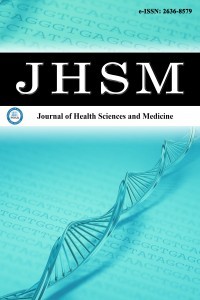1.
El-Wakil HS, Desoky I, Lotfy N, Adam AG. Fasting the monthof Ramadan by Muslims: Could it be injurious to their kidneys?Saudi J Kidney Dis Transpl. 2007;18(3):349.
2.
Mbarki H, Tazi N, Najdi A, Tachfouti N, Arrayhani M, SqalliT. Effects of fasting during Ramadan on renal function ofpatients with chronic kidney disease. Saudi J Kidney Dis Transpl.2015;26(2):320-324. doi:10.4103/1319-2442.152494
3.
Al Muhanna FA. Ramadan fasting and renal failure. Saudi Med J.1998;19(3):319-321.
4.
Hassan S, Hassan F, Abbas N, et al. Does Ramadan Fasting AffectHydration Status and Kidney Function in CKD Patients? AnnNutr Metab. 2018;72(3):241-247. doi:10.1159/000486799
5.
Ahmad S, Chowdhury TA. Fasting during Ramadan in peoplewith chronic kidney disease: a review of the literature. Ther AdvEndocrinol Metab. 2019;10:2042018819889019.
6.
The future of the global Muslim population. Pew ResearchCenter’s Religion & Public Life Project. Published January27, 2011. Accessed July 26, 2023. Available at: https://www.pewresearch.org/religion/2011/01/27/the-future-of-the-global-muslim-population/
7.
Demir ME. Böbrek hastaları ve oruç ibadeti. Med Princ Pract.2018;1(2):45-46. doi:10.32322/jhsm.400011
8.
Hassanein M, Al-Arouj M, Hamdy O, et al. Diabetes and Ramadan:practical guidelines. Diabetes Res Clin Pract. 2017;126:303-316.
9.
Nazzal Z, Hamdan Z, Masri D, Abu-Kaf O, Hamad M. Prevalenceand risk factors of chronic kidney disease among Palestiniantype 2 diabetic patients: a cross-sectional study. BMC Nephrol.2020;21(1):484. doi:10.1186/s12882-020-02138-4
10.
Chow CK, Teo KK, Rangarajan S, et al. Prevalence, awareness,treatment, and control of hypertension in rural and urbancommunities in high-, middle-, and low-income countries.JAMA. 2013;310(9):959-968. doi:10.1001/jama.2013.184182
11.
Habas E Sr, Errayes M, Habas E, et al. Fasting Ramadan in chronickidney disease (CKD), kidney transplant and dialysis patients:review and update. Cureus. 2022;14(5): e25269.
12.
Turkish Society of Nephrology, 2019 annual registry; availablefrom https://nefroloji.org.tr/uploads/folders/file/registry_2019.pdf Accessed: 19.07.2023
13.
Kara E, Sahin OZ, Kizilkaya B, et al. Fasting in Ramadan isnot associated with deterioration of chronic kidney disease: aprospective observational study. Saudi J Kidney Dis Transpl.2017;28(1):68-75. doi:10.4103/1319-2442.198140
14.
NasrAllah MM, Osman NA. Fasting during the month ofRamadan among patients with chronic kidney disease: renal andcardiovascular outcomes. Clin Kidney J. 2014;7(4):348-353.
15.
Emami-Naini A, Roomizadeh P, Baradaran A, Abedini A, AbtahiM. Ramadan fasting and patients with renal diseases: a minireview of the literature. J Res Med Sci. 2013;18(8):711-716.
16.
Bernieh B, Al Hakim MR, Boobes Y, Abu Zidan FM. FastingRamadan in chronic kidney disease patients: clinical andbiochemical effects. Saudi J Kidney Dis Transpl. 2010;21(5):898-902.
17.
Einollahi B, Lessan-Pezeshki M, Pourfarziani V, et al. Ramadanfasting in kidney transplant recipients with normal renal functionand with mild-to-moderate renal dysfunction. Int Urol Nephrol.2009;41(2):417-422. doi:10.1007/s11255-008-9476-y
18.
Ansari FA, Latief M, Manuel S, et al. Impact of fasting duringRamadan on renal functions in patients with chronic kidneydisease. Indian J Nephrol. 2022;32(3):262-265.
19.
Abdullah M, Wahyudi ER, Nugroho P, Alfian A. Kidney functionprofile before, during, and after Ramadan fasting in healthy elderly:a prospective cohort study. Med J Indonesia. 2022;31(2):115-119.
20.
Eldeeb AA, Mahmoud MA, Ibrahim AB, Yousef EA, Sabry AA.Effect of Ramadan fasting on arterial stiffness parameters amongEgyptian hypertensive patients with and without chronic kidneydisease. Saudi J Kidney Dis Transpl. 2020;31(3):582-588.
21.
Chowdhury A, Khan H, Lasker SS, Chowdhury TA. Fastingoutcomes in people with diabetes and chronic kidney disease inEast London during Ramadan 2018: The East London diabetesin Ramadan survey. Diabetes Res Clin Pract. 2019; 152:166-170.
22.
Akaberi A, Golshan A, Moojdekanloo M, Hashemian M. Doesfasting in Ramadan ameliorate Lipid profile? a prospectiveobservational study. Pak J Med Sci Q. 2014;30(4):708-711.
23.
Akhtar P, Kazmi A, Sharma T, Sharma A. Effects of Ramadanfasting on serum lipid profile. J Family Med Prim Care.2020;9(5):2337-2341. doi:10.4103/jfmpc.jfmpc_550_19
24.
Darzabi T, Hejazi K. The effects of Ramadan fasting on electrolytesindex, serum osmolarity and body composition in fasting andnon-fasting students: A quasi-experimental study. Jundishapur JChronic Dis Care. 2020;9(2). doi:10.5812/jjcdc.100079

